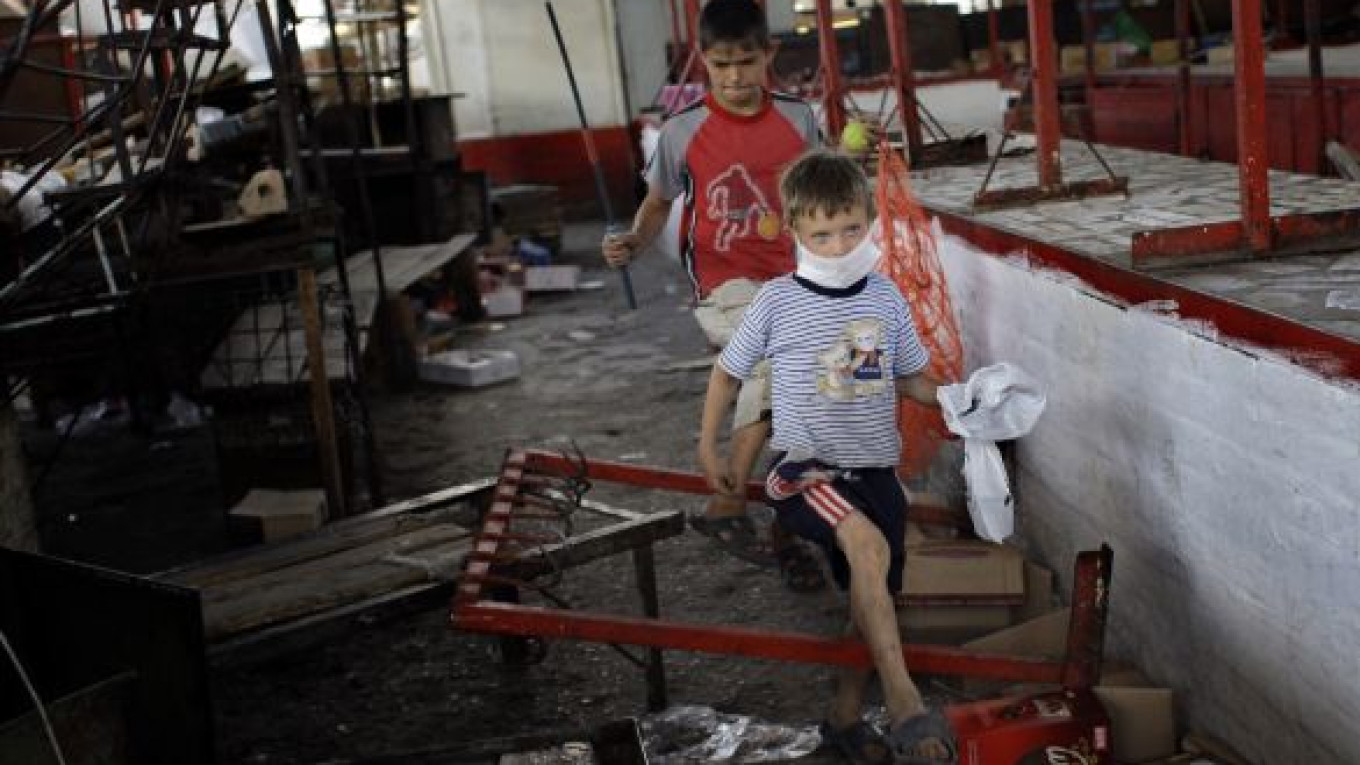OSH, Kyrgyzstan — Kyrgyzstan's security forces clashed with ethnic Uzbeks on Monday in the south of the country, where up to 2,000 people were killed in a wave of bloodletting earlier this month.
Rights groups said four people were killed and more than 20 wounded when Kyrgyz forces raided an Uzbek village near Osh, epicenter of the ethnic clashes that broke out on June 10.
The authorities put the death toll at two, saying law enforcement forces had run into "armed resistance."
Speaking during a visit to nearby Jalal-Abad, Kyrgyz interim leader Roza Otunbayeva pledged to press ahead with a referendum on a new constitution on Sunday despite security concerns.
"Holding this referendum has become necessary because we must create a legal framework," said Otunbayeva, who came to power after a revolt in April toppled the country's president.
"If we allow any delays, this will threaten us with further instability," said Otunbayeva, who needs the referendum as a stepping stone toward presidential and parliamentary elections.
This month's bloodshed destroyed entire neighborhoods and sent 400,000 people fleeing for the Uzbek border, where they are living with little food in squalid camps.
The United States and Russia, which both operate military air bases in Kyrgyzstan, are concerned that unrest could spread into other parts of Central Asia.
Mainly Uzbek households were attacked during the three days of unrest earlier in June. Locals said state troops, comprising mainly ethnic Kyrgyz soldiers, did little to protect them and in some cases took part in the attacks.
The United States has called for an international probe.
Tolekan Ismailova, a prominent human rights campaigner, said government security forces swept through the village of Nariman, near Osh, on Monday in response to the killing of a policeman last week. She said they used rifle butts to beat people and some local men had been taken away.
Ole Solvang, a researcher with Human Rights Watch, said by telephone from a hospital in Osh: "The military have been going around doing checks … and looking for weapons. A lot of people have been beaten up."
A local interim government spokesman said government forces had come under attack in Nariman. "According to preliminary information, two civilians died," he said.
While the official death toll is 208, Otunbayeva has said 10 times as many people may have been killed in this month's violence.
Her tiny, under-equipped army has struggled to bring order to the south, and security worries have prevented relief organizations from reaching the worst-affected areas.
Otunbayeva said her government is capable of holding the referendum but some observers in Kyrgyzstan have called on her to put it off. Some ordinary Kyrgyz people believe that holding the vote could trigger more unrest.
The Organization for Security and Cooperation in Europe said it would not send short-term observers to Kyrgyzstan for the referendum for security reasons.
"I have called on the government to postpone the referendum," said Edil Baisalov, Otunbayeva's former chief of staff, who resigned two weeks ago and set up his own party.
"It is not only morally wrong, but it's also politically disastrous to push ahead with the referendum. … All in all law enforcement [agents] and the military were not prepared to deal with this conflict."
A Message from The Moscow Times:
Dear readers,
We are facing unprecedented challenges. Russia's Prosecutor General's Office has designated The Moscow Times as an "undesirable" organization, criminalizing our work and putting our staff at risk of prosecution. This follows our earlier unjust labeling as a "foreign agent."
These actions are direct attempts to silence independent journalism in Russia. The authorities claim our work "discredits the decisions of the Russian leadership." We see things differently: we strive to provide accurate, unbiased reporting on Russia.
We, the journalists of The Moscow Times, refuse to be silenced. But to continue our work, we need your help.
Your support, no matter how small, makes a world of difference. If you can, please support us monthly starting from just $2. It's quick to set up, and every contribution makes a significant impact.
By supporting The Moscow Times, you're defending open, independent journalism in the face of repression. Thank you for standing with us.
Remind me later.


